|
|
|
|
10th COGNO Annual Scientific Meeting
Tailoring Therapies for Brain Tumours: Challenges and Opportunities
Monday 23rd - Tuesday 24th October 2017
Rydges Melbourne Hotel, 186 Exhibition Street, Melbourne, VIC Australia
KEYNOTE SPEAKERS
 Professor Patrick Wen, MD Professor Patrick Wen, MD
Professor of Neurology, Harvard Medical School
Editor-In-Chief, Neuro-Oncology
Director, Center for Neuro-Oncology
Dana-Farber Cancer Institute, USA
Dr Patrick Wen is Professor of Neurology at Harvard Medical School, Director of the Center For Neuro-Oncology at Dana-Farber Cancer Institute and Chief, Division of Neuro-Oncology, Department of Neurology, Brigham and Women’s Hospital. He is also the Editor-in-Chief of Neuro-Oncology, Co-PI of the National Cancer Institute supported Adult Brain Tumor Consortium and a member of the Executive Committee of the Response Assessment in Neuro-Oncology Working Group. His work is focused on developing novel therapies for brain tumors, and improving response assessment and optimizing clinical trial design. For more information, please click here.
|
 Professor Daniel Kelly, MD Professor Daniel Kelly, MD
Founder and Director, Pacific Neuroscience Institute
Director, Brain Tumor Center and Pituitary Disorders Center
Professor of Neurosurgery, John Wayne Cancer Institute, USA
Daniel F. Kelly, MD, a board certified neurosurgeon, is Director of the Pacific Neuroscience Institute at Providence Saint John’s Health Center and Professor of Neurosurgery at John Wayne Cancer Institute. In practice for over 22 years, Dr. Kelly is internationally recognized in the field of minimally invasive and endoscopic keyhole surgery for brain, skull base and pituitary tumors. He has been awarded the Southern California SuperDoctors distinction 11 years in a row (2006-17). ( more...)
|
 Professor Koichi Ichimura, MD PhD Professor Koichi Ichimura, MD PhD
Chief, Division of Brain Tumor Translational Research
National Cancer Center Research Institute, Japan
Professor Koichi Ichimura is Chief of the Division of Brain Tumor Translational Research, National Cancer Centre Research Institute, Tokyo. Professor Ichimura is a graduate of the Tokyo Medical and Dental School. He has held research positions at the Ludwig Institute for Cancer Research (Karolinska Institute, Sweden) and Department of Pathology, Cambridge University (United Kingdom). He is author on numerous papers and is on the editorial board of Neuro-Oncology, Neuro-Oncology Practice and Acta Neuropathologica.
|
INTERNATIONAL SPEAKER
 A/Prof Benjamin Ellingson A/Prof Benjamin Ellingson
A/Prof Benjamin Ellingson is the Director of the UCLA Brain Tumor Imaging Laboratory (BTIL), Co-Director of the Center for Computer Vision and Imaging Biomarkers, and a member of the UCLA Brain Tumor Program. Dr. Ellingson’s research involves the development, testing, and implementation of advanced MRI and PET imaging biomarkers for the characterization of brain tumor biology and response evaluation in clinical trials. Dr. Ellingson has been a co-author on more than 100 peer-reviewed original research articles relating to neuroimaging. Dr. Ellingson has extensive experience performing data management and imaging analysis in multicenter clinical trials in brain cancer. He currently serves as the Chair of the Neuro-Imaging Committee for the NIH-funded Adult Brain Tumor Consortium (ABTC), Chair of the Imaging Committee for the Ben and Catherine Ivy Foundation Consortium for Early Phase Clinical Trials, Chair of the Imaging Committee for the new Glioblastoma Global Adaptive Trial, is a member of the American College of Radiology Imaging Network (ACRIN), and is involved in imaging for brain tumor trials run by a cooperative groups and pharmaceutical companies.
|
 Dr Maciej Mrugala Dr Maciej Mrugala
Dr Maciej Mrugala received a medical degree in 1995 from the University of Warsaw Medical School in Poland, and a Ph.D. from the Copernicus University in Torun, Poland, in 2003. He completed neurology residency at the University of Massachusetts Medical School in 2003, where he was chief resident. He also completed fellowships in neuro-oncology at the Massachusetts General Hospital, and Dana-Farber Cancer Institute in Boston from 2003–2006, while concurrently earning a Master in Public Health at Harvard School of Public Health. In 2013, Dr Mrugala became Alexander M Spence Endowed Chair in Neuro-Oncology and the Chief of the Division of Neuro-Oncology at the University of Washington Medical School. In January 2017, Dr Mrugala joined the Mayo Clinic in Scottsdale/Phoenix, Arizona as a Senior Associate Consultant.
Dr Mrugala’s expertise is in primary glial brain tumors, primary central nervous system lymphoma and neurofibromatosis. He has participated as a principal investigator in multiple national and international clinical trials for gliomas. His research interests are in overcoming resistance of brain tumors to chemotherapy and in finding better ways to treat neurofibromatosis. He is also interested in neuro-oncology education and has been directing the education course in collaboration with Society for Neuro-Oncology and the American Academy of Neurology.
|
AUSTRALIAN SPEAKERS AND EXPERTS
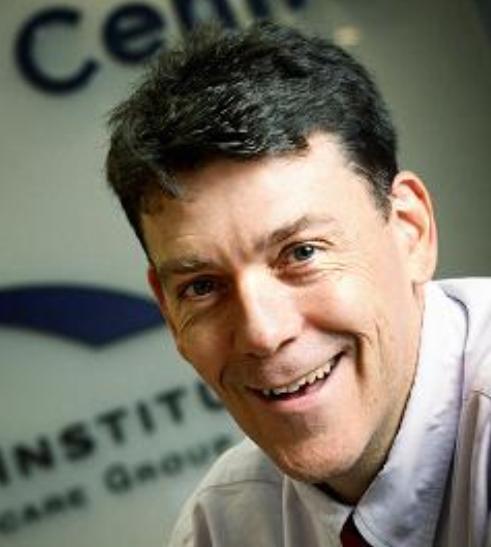 A/Prof Michael Back A/Prof Michael Back
A/Prof Michael Back is Director of Radiation Oncology for the Northern Sydney Cancer Centre at the Royal North Shore Hospital, Sydney and is also visiting consultant at the Central Coast Cancer Centre and Genesis Cancer Care NSW. His research interests include optimising radiation therapy target volume delineation and implementation of sophisticated techniques for patients with high grade glioma. He is a member of the COGNO National Clinical Trial Committee for the EORTC CATNON Study, and is an active recruiter to international clinical trials through SNOG, COGNO and TROG.
|
 Mr John Berrill Mr John Berrill
John is a partner of the new consumer law firm Berrill & Watson.
He is a superannuation and insurance lawyer and is an accredited personal injuries specialist.
John is on the boards of the Consumer Action Law Centre, the Chronic Illness Alliance and the Superannuation Complaints Tribunal Advisory Council. He is also consumer representative on the AFTA (travel agents) Code Compliance Committee, the FOS/SCT Joint Working Group and is a volunteer at Social Security Rights Victoria.
He was a member of the Financial Industry Complaints Service Board and Panel, the Superstream Advisory Council, the Stronger Super Implementation Committee and the Natural Disaster Insurance Review Panel.
John has worked in the areas of superannuation, insurance and financial advice for 25 years providing advocacy and advice to consumers and has been heavily involved in policy and law reform work.
|
 Dr Lawrence Cher Dr Lawrence Cher
Dr Lawrence Cher graduated from the University of Sydney and trained in Neurology at the Heidelberg Repatriation and the Austin Hospitals.
He completed post-graduate Neurology and Neuro-oncology training at Massachusetts General Hospital in Boston with Dr Fred Hochberg. He was involved in the care and treatment of patients with brain tumours, as well as patients with neurologic complications associated with cancer.
On return to Australia he set up the Neuro-oncology service at Austin Health, and private practice. He has been involved in numerous clinical trials in primary brain tumours as well as treatment of neurologic side effects of cancer, and is a foundation member of the Society of Neuro-oncology, a member of the American Academy of Neurology, the Australian and New Zealand Association of Neurology, the American Society of Clinical Oncology, and COGNO.
|
 Ms Emma Daly Ms Emma Daly
Ms Emma Daly is a Registered Nurse and holds a Masters of Primary Health. Emma currently works as a Neuro-Oncology Clinical Nurse Consultant with Cabrini Health. She has 17 years’ experience as a nurse, 12 years within a specialist palliative care before moving into Neuro-oncology. Emma has spent the past 5 years working specifically within Neuro-oncology. Emma led the design and implementation of Cabrini's integrated Neuro-oncology program. She currently leads the team of Neuro-oncology nurses providing care across the continuum for people with primary brain tumours within this program.
|
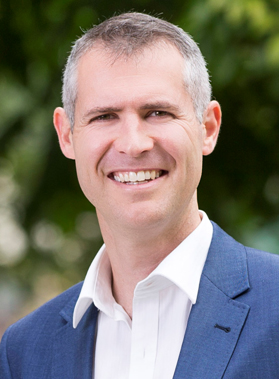 Dr Bryan Day Dr Bryan Day
Dr Bryan Day holds a PhD from the University of Queensland and is the Team Head of the Translational Brain Cancer Research Laboratory at the QIMR Berghofer Medical Research Institute. He and his team focus on the most common and aggressive form of brain cancer, Glioblastoma (GBM) in adults and the most common brain cancer in children, Medulloblastoma. He is a past Director for the Australian Society of Medical Research (ASMR) and is passionate about maintaining the ongoing success and sustainability of medical research in Australia. Among his achievements have been the development of a brain tumour bank at QIMR Berghofer and the characterisation of the receptor EphA3 as a therapeutic target in brain cancer. This research has led to clinical testing of a novel EphA3 therapeutic antibody for aggressive treatment refractory brain cancers. Dr Day’s main research focus is on understanding brain cancer cell biology and identifying novel therapeutic agents to treat these aggressive diseases.
|
 Ms Jane Fletcher Ms Jane Fletcher
Ms Jane Fletcher is a health psychologist with over 15 years’ experience working with individuals with cancer. She runs a specialist psycho-oncology private practice at Cabrini Health and Epworth Freemasons. Jane holds adjunct appointments with the Szalmuk Family Psycho-oncology Research Unit based at Cabrini Health and with Monash University. Jane offers evidence based interventions to individuals, couples and families at all stages of the cancer experience. She has extensive experience using cognitive-behavioural therapy, acceptance and commitment therapy, a range of existential approaches and mindfulness based interventions. She is qualified in medical hypnosis and uses this for the treatment of cancer related sleep disorder, phobic and conditioned responses. She has a special interest in sexuality and is experienced in a range of specific interventions for the psycho-sexual issues associated with a cancer diagnosis. Special interests include neuro-oncology, breast, gynaecological, prostate, bowel, lung and haematological cancers. She also works with those who have a palliative diagnosis and those who have tested gene positive for cancer who may require prophylactic surgical intervention. Jane speaks widely, both locally and internationally, to peers and those living with a cancer diagnosis.
|
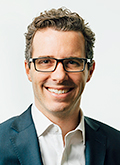 A/Prof Frank Gaillard A/Prof Frank Gaillard
A/Prof Frank Gaillard graduated from the University of Melbourne medical school in 1998. He trained as a radiologist at the Royal Melbourne Hospital, where he eventually returned as a consultant neuroradiologist after completing two years of neuroradiology fellowship training, and living and working in Canada.
He is the current Director of Research of the Radiology Department at Royal Melbourne Hospital and a Clinical Associate Professor in the Faculty of Medicine, Dentistry and Health Sciences at the University of Melbourne. In addition to his work as a neuroradiologist, A/Prof Frank Gaillard has active research interests particularly in imaging of CNS tumours, neurodegenerative diseases, and computer aided MRI interpretation.
He is probably best known, however, as the Founder CEO of Radiopaedia.org, the largest collaborative online radiology resource, which forms one of the cornerstones of medical education throughout much of the world, particularly in developing countries.
|
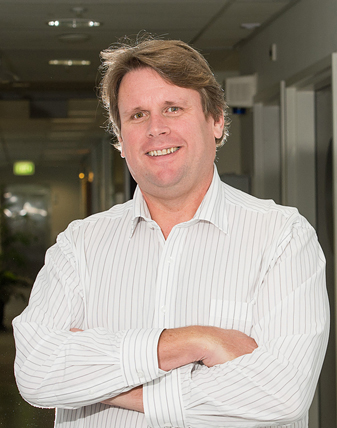 Prof Terrance Johns Prof Terrance Johns
Prof Terrance Johns is Professor of Cancer Biology at Monash University and Head of the Oncogenic Signalling Laboratory at Hudson Institute of Medical Research, in Melbourne.
In 1993, at Monash University, he completed a PhD on new therapies for melanoma. Prof Johns then conducted his post-doctoral studies on the central nervous system, developing a new animal model that today remains the gold standard for multiple sclerosis research. In 1998, he moved to the Ludwig Institute for Cancer Research in Melbourne to head the Oncogenic Signalling Laboratory. The main focus of the laboratory was developing antibodies that target receptors important for the survival and growth of cancer, especially brain cancer. Notably, Prof Johns was a major contributor to the discovery of a brain-cancer-specific therapeutic antibody that was subsequently licensed to AbbVie. This antibody, mAb 806, is now in phase 3 clinical trial as ABT-414.
In 2008, Prof Johns returned to Monash University, where he continues to develop novel strategies for treating brain cancer. Alongside this work, Prof Johns is actively working with international collaborators and pharmaceutical partners to move new drugs into clinical trials for brain cancer. He is also Founder and Head of the Brain Cancer Discovery Collaborative, a nationwide consortium of brain cancer scientists and clinicians with the goal of accelerating the translation of promising new therapeutics and therapeutic strategies into the clinic. Prof Johns has been a member of COGNO’s Management Committee since 2012 and its Scientific Advisory Committee since 2013. In late 2017, Prof Johns will become Head of the Telethon Kids Cancer Centre.
|
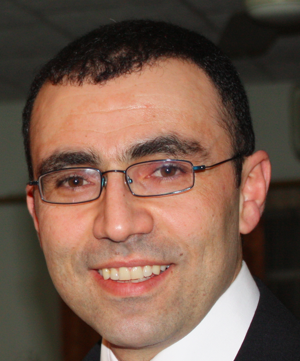 A/Prof Mustafa Khasraw A/Prof Mustafa Khasraw
A/Prof Khasraw is a clinical lead at the NHMRC Clinical Trials Centre of The University of Sydney and the Cooperative Trials Group for Neuro-Oncology (COGNO). In addition, he is a practising medical oncologist and neuro-oncologist at Royal North Shore Hospital and Northern Cancer Institute in Sydney. A/Prof Khasraw is leading several multi-centre clinical trials and research projects and serves on a number of research, advisory, policy and grant review panels.
|
 A/Prof Brian Le A/Prof Brian Le
Brian is the director of Palliative Care at the Victorian Comprehensive Cancer Centre, including the Peter MacCallum Cancer Centre and The Royal Melbourne Hospital. Brian is a specialist in both Palliative Medicine and Medical Oncology, and is an Associate Professor of the University of Melbourne.
Brian is primarily a clinician, providing direct patient care in hospital and home settings, and clinical research including clinical trials of novel therapies, and research into palliative care integration and benefits for patients and carers. He is on the scientific committee of the Palliative Care Clinical Trials Collaborative and immediate past-chair of the Training Committee of the Royal Australasian College of Physicians, responsible for training of all palliative medicine specialists in Australia and New Zealand, and a past chair of Palliative Care Victoria.
|
 Dr Hien Le Dr Hien Le
Dr Hien Le is a Royal Adelaide Hospital radiation oncologist with clinical interests in the application of innovative and emerging cancer technologies. Dr Le received the Royal Australian and New Zealand College of Radiologists Windeyer Fellowship award in 2011 and with this spent a year at Mount Vernon Cancer Centre (UK) learning the techniques involved in Cyberknife radiation and MRI based image guided brachytherapy. In 2013, he received the College Thomas Baker award, completing an observership at the Massachusetts General Hospital (US) where he learned the applications of spread out Bragg peak and intensity modulated proton therapy. In 2014, he co-ordinated the treatment of the state’s first stereotactic ablative body radiotherapy patient, a program that has already treated over 230 patients at the RAH. Additionally, Dr Le is the lead investigator on a number of Trans Tasman Radiation Oncology Group trials and local clinical trials.
|
 Ms Dianne Legge Ms Dianne Legge
Originally trained as an occupational therapist, Ms Legge has worked in neurological, rehabilitation and oncology settings for over 25 years. Since 2009, Ms Legge has coordinated the Brain Tumour Support Service based at the Olivia Newton-John Cancer Wellness & Research Centre, Austin Health and works as a care coordinator in the Neuro-Oncology team. Her experience includes individual and group support, and the development of resources and education programs for patients with brain cancer and their families. Ms Legge is a foundation staff member of the Wellness & Supportive Care team at the ONJ Centre. Ms Legge is actively involved in a range of research projects relating to brain tumour support and wellness, and is currently completing a research masters through Queensland University of Technology investigating the experiences of people with low-grade glioma.
|
 Dr Julie Lokan Dr Julie Lokan
Dr Julie Lokan is a senior staff specialist at Austin Hospital in Melbourne, in the Department of Anatomical Pathology. She is a surgical pathologist, with subspecialty areas of interest including surgical neuropathology, liver and gastrointestinal pathology. Julie is a member of the Australian and New Zealand Society for Neuropathology.
|
 Dr Zarnie Lwin Dr Zarnie Lwin
Dr Zarnie Lwin is a Senior Staff Specialist Medical Oncologist from the Royal Brisbane and Women’s Hospital, University of Queensland, Australia.
She obtained her MBBS degree in Rangoon, Burma, then pursued physician training in Johannesburg, South Africa, medical oncology training in Australia, and undertook a Fellowship in Neurooncology and Health Services Research in Toronto, Canada.
Dr Lwin is Chair of COGNO Outreach including the COGNO Outreach Educational Preceptorship Program. She has convened several national Annual Scientific Meetings in Australia, and has been the Co-Convenor of the COGNO Ideas Generation Workshop for the past 4 years.
She was the Scientific Program Co-Lead and Chair of the Social Committee for ASNO-COGNO 2016 in Australia which attracted delegates from 20 countries.
Dr Lwin is also the immediate ex Vice-Chair and Treasurer of the Medical Oncology Group of Australia (MOGA), and a current National Executive member.
Her main research interests include the interface where sociology meets oncology, and improving cancer outcomes for Culturally and Linguistically Diverse communities (CALD).
|
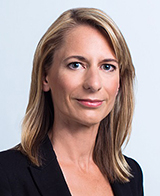 A/Prof Kerrie McDonald A/Prof Kerrie McDonald
A/Prof Kerrie McDonald is the Chair of the Cure Brain Cancer Neuro-oncology Group at the Lowy Cancer Research Centre, UNSW. She runs a team of 11 scientists and students working on personalised medicine where they are matching drugs to the patients’ tumour genome. The group specialise in biomarker development for use in pre-clinical and clinical trials.
|
 Prof John Olver Prof John Olver
Prof John Olver is a Consultant Physician in Rehabilitation Medicine, and a Professor in Rehabilitation Medicine in the Department of Medicine at Monash University. He is Medical Director of Rehabilitation at Epworth Healthcare, Melbourne, Australia, where he is also Coordinator of the Epworth Rehabilitation Acquired Brain Injury Programme. In 2008 he was appointed as Chairman of the Clinical Institute of Rehabilitation, Psychiatry and Pain Management at Epworth HealthCare and in 2009 was appointed to the Victor Smorgon Chair of Rehabilitation Medicine, Epworth HealthCare and Monash University. He is Director of the Epworth Monash Rehabilitation Medicine Research Unit (EMReM), the medical research arm of Epworth HealthCare Rehabilitation. He is Clinical Director of the Australasian Rehabilitation Outcomes Centre (AROC).
He is past-President of the Australasian Faculty of Rehabilitation Medicine (AFRM) and a past-President of the Asia-Oceanian Society of Physical and Rehabilitation Medicine (AOSPRM). He was a member of the President’s Cabinet of the International Society of Physical and Rehabilitation Medicine (ISPRM), as treasurer, for the last six years. Professor Olver was on the Council of the World Neurological Rehabilitation Federation (WFNR) as the Oceania Representative (2000-2016) and Convenor of the 2012 Melbourne WFNR Scientific Conference Committee. In 2014, he was a Recipient of a Member in the General Division of the Order of Australia (AM) “for significant service to medicine, particularly the treatment and rehabilitation of acquired brain injuries” and awarded the Centenary of Federation Medal for services to Road Safety in 2002.
Professor Olver's main research interests and a focus of publications concerns the outcomes following traumatic brain injury, management of spasticity and innovations in stroke rehabilitation. He has co-authored over 70 papers and 5 book chapters. In 2000, he completed a doctorate of medicine at The University of Melbourne, entitled “Videomotion Analysis of Gait and Sway Characteristics in Young Adults following Traumatic Brain Injury”.
|
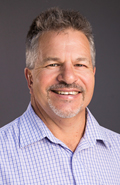 Prof Stephen Rose Prof Stephen Rose
Prof Rose is the Director of CSIRO’s Probing Biosystems Future Science Platform and honorary Principal Research Fellow within the UQ Centre for Clinical Research, located at the Royal Brisbane and Women’s Hospital. His research interests include the development and application of novel medical imaging technology and clinical image informatics programs to improve the management and outcomes for patients with brain cancer.
|
 Dr Brindha Shivalingam Dr Brindha Shivalingam
Dr Brindha Shivalingam graduated from Sydney University in
1996. She embarked on neurosurgical training in 2002, training entirely
in Sydney, and completed her training in 2006. She completed a
fellowship in neuro-oncology and skull base surgery in Addenbrookes
Hospital, Cambridge, UK. She took up her current post as a VMO
Neurosurgeon at Royal Prince Alfred (RPA) Hospital, Sydney in April
2008.
The focus of Dr Shivalingam’s practice lies in
neuro-oncology and skull base surgery but she also practices general
Neurosurgery (spine, CSF disorders, trauma). She has a special
neuro-oncology interest in Gliomas and in melanoma surgery and works
closely with Melanoma Institute Australia. At RPA, Dr Shivalingam
focuses her Glioma surgery on the use of Australia’s first
intraoperative MRI. The skull base surgery involves close collaboration
with ENT surgeons. Her skull base practice focuses on acoustic neuroma
surgery and anterior endoscopic surgery.
Dr Shivalingam is currently a full member of the NSA, a member of NSWOG, a member of ANZMTG and a member of COGNO.
Dr Shivalingam’s education and research activities have
included: JMO supervisor, Medical student teaching at University of
Sydney and Notre Dame University, supervision of two SET Neurosurgical
trainees and one preSET.
|
|
|
|
|
|
|